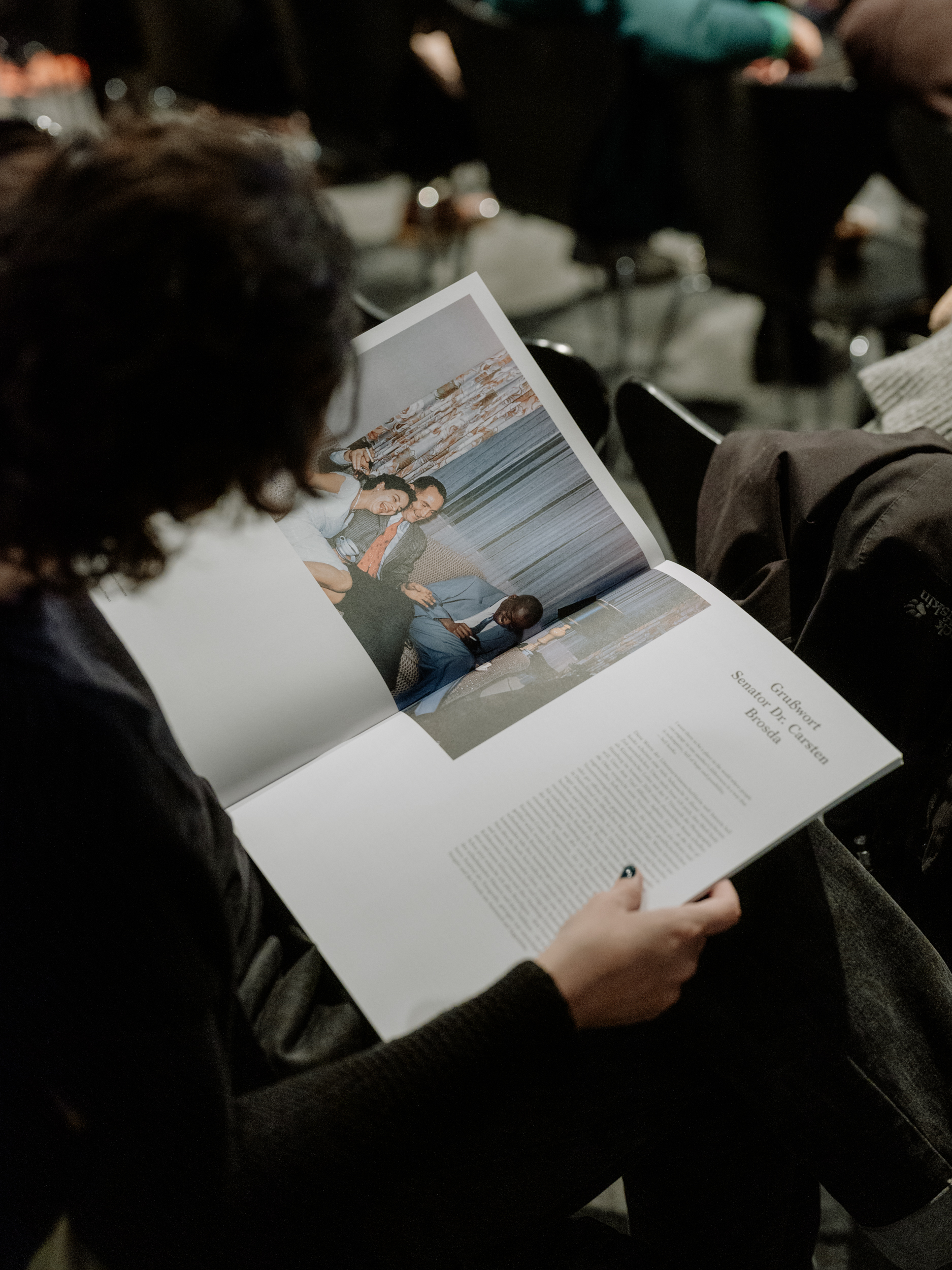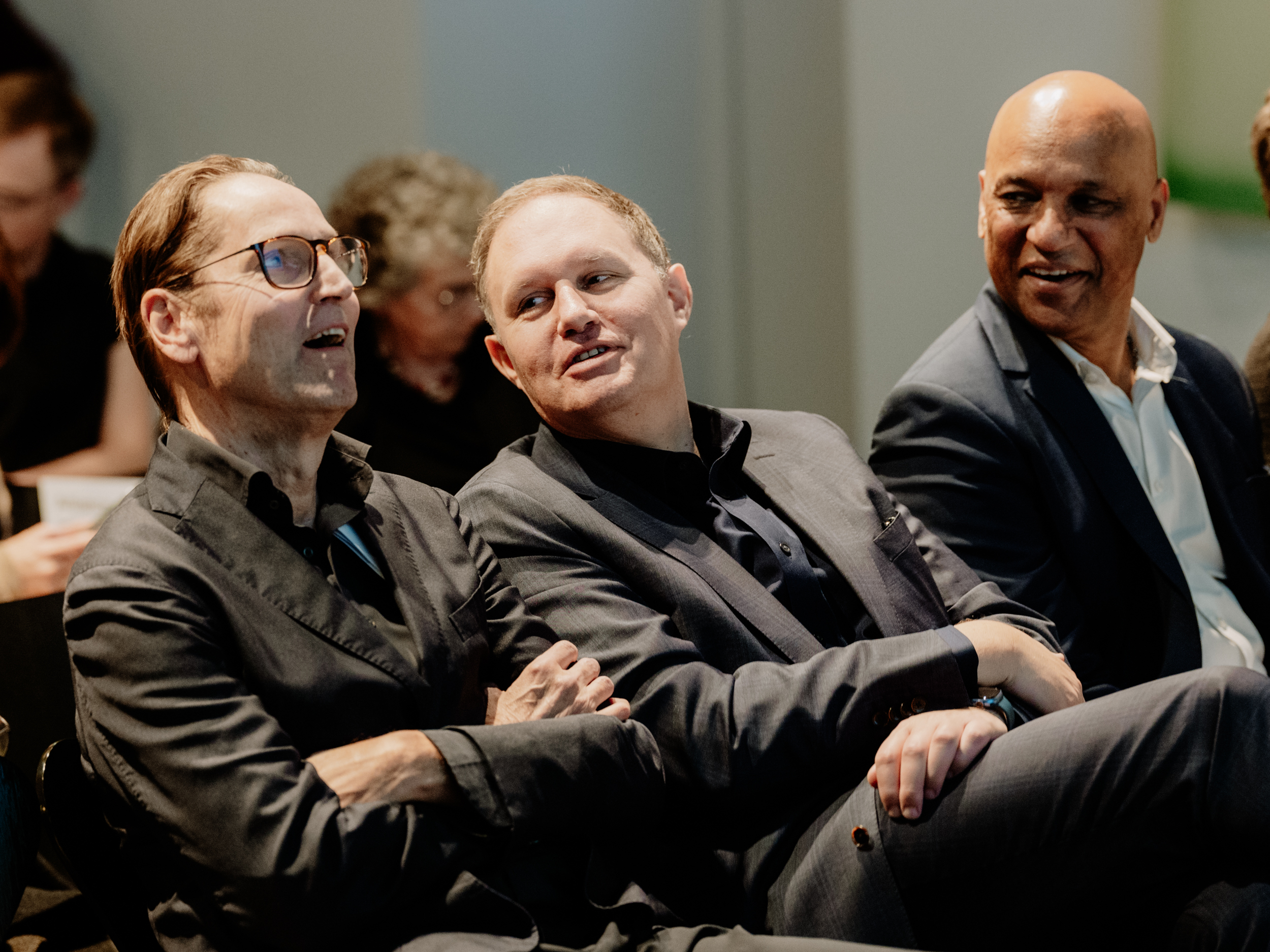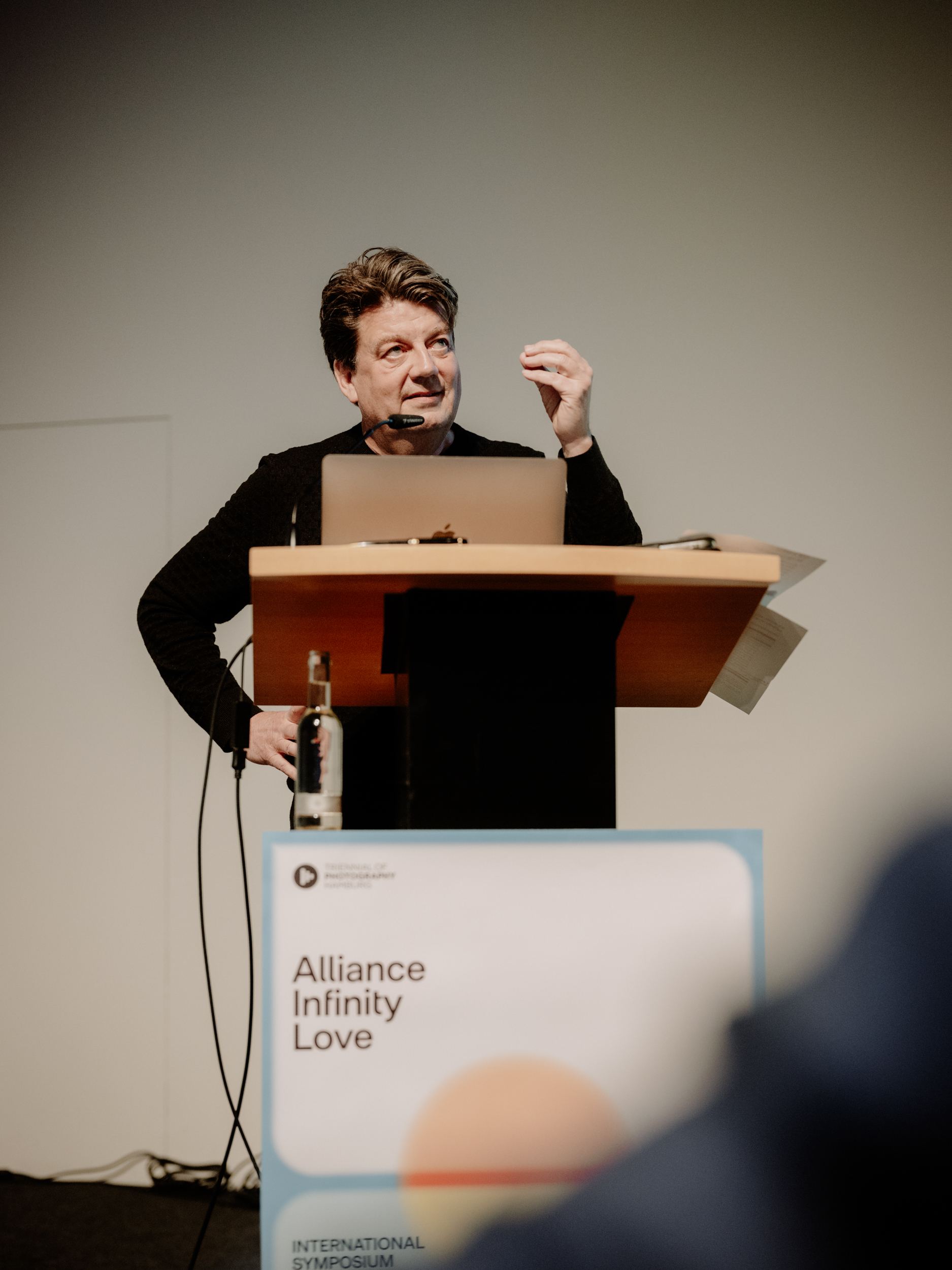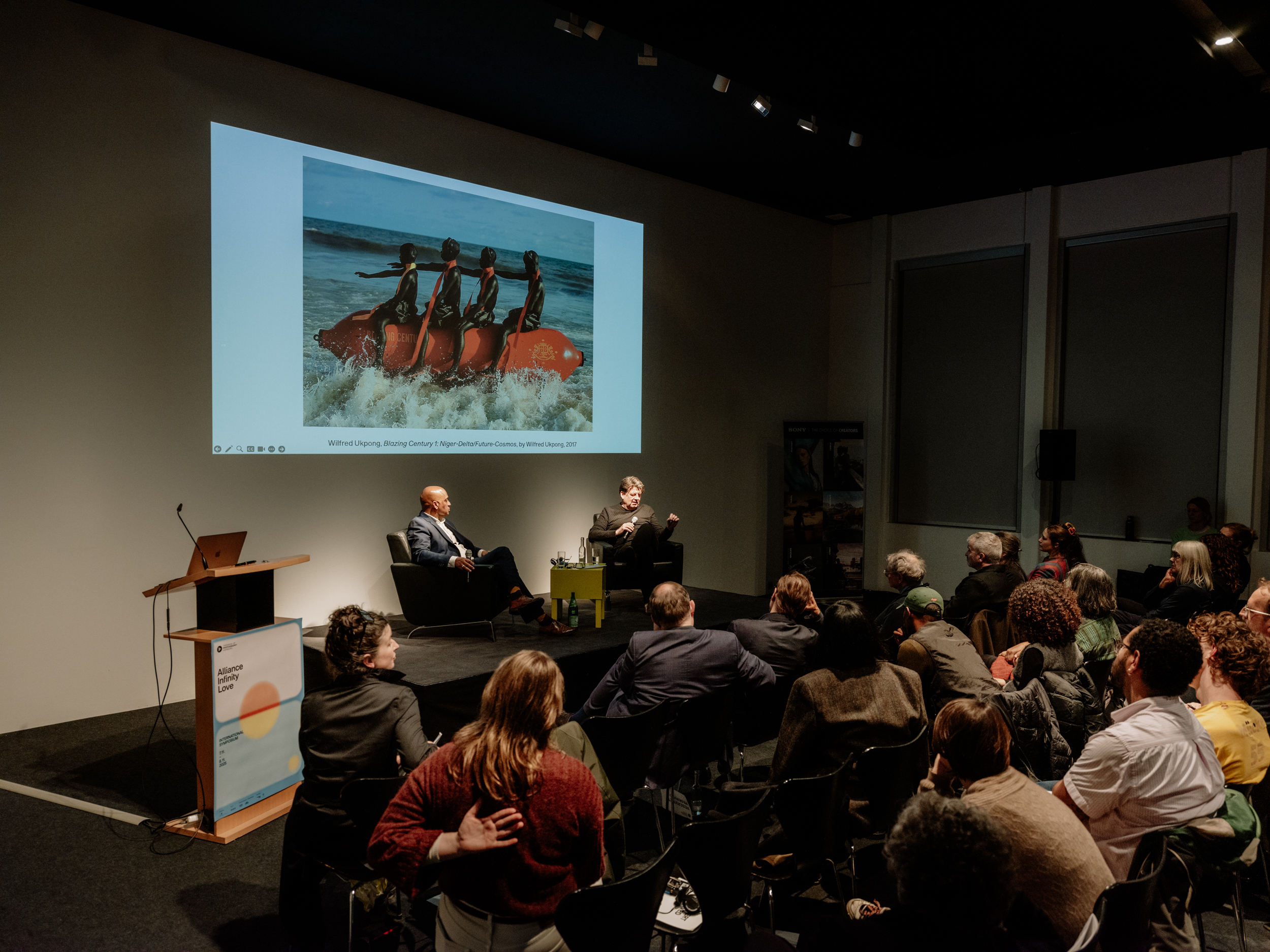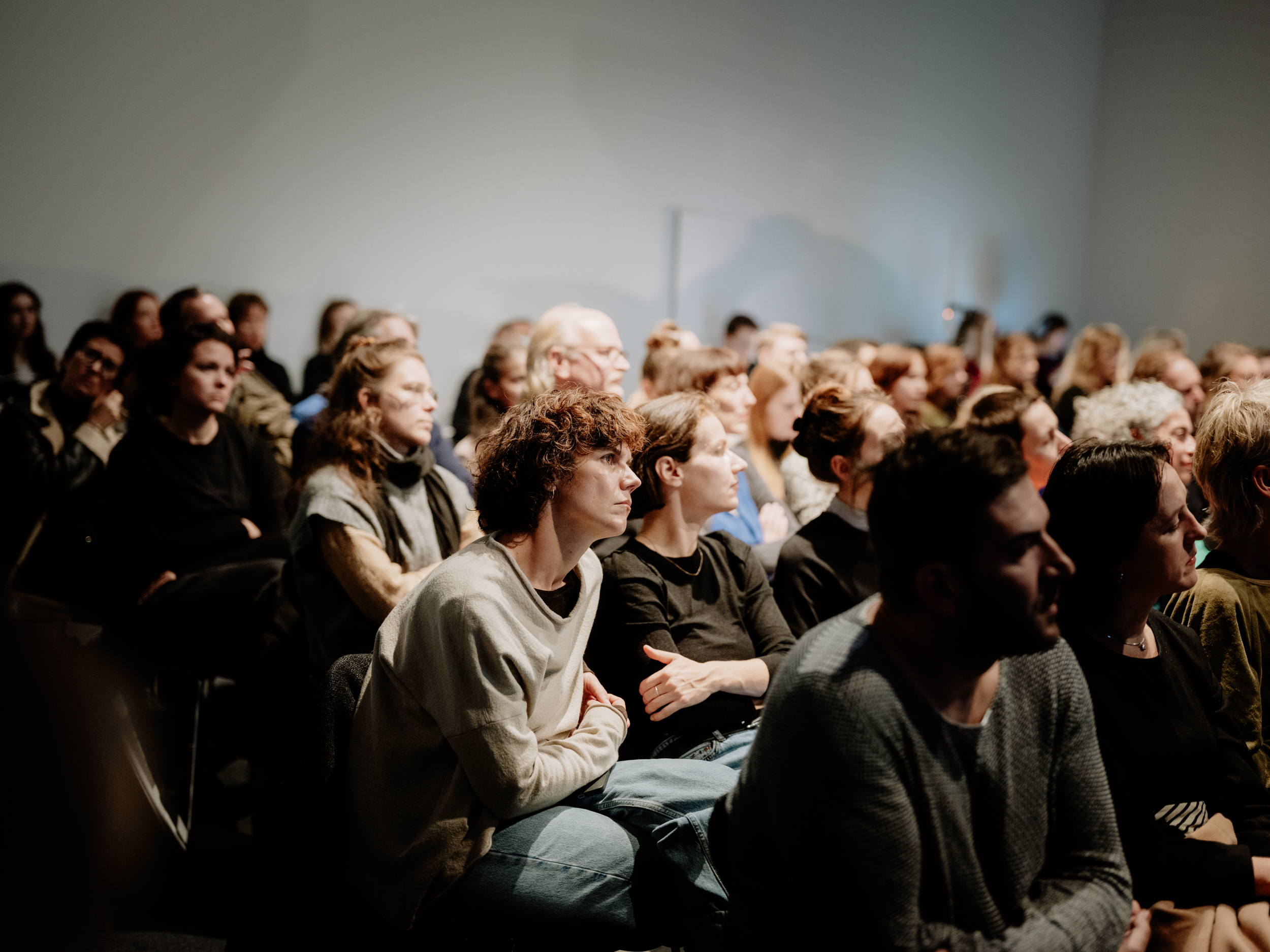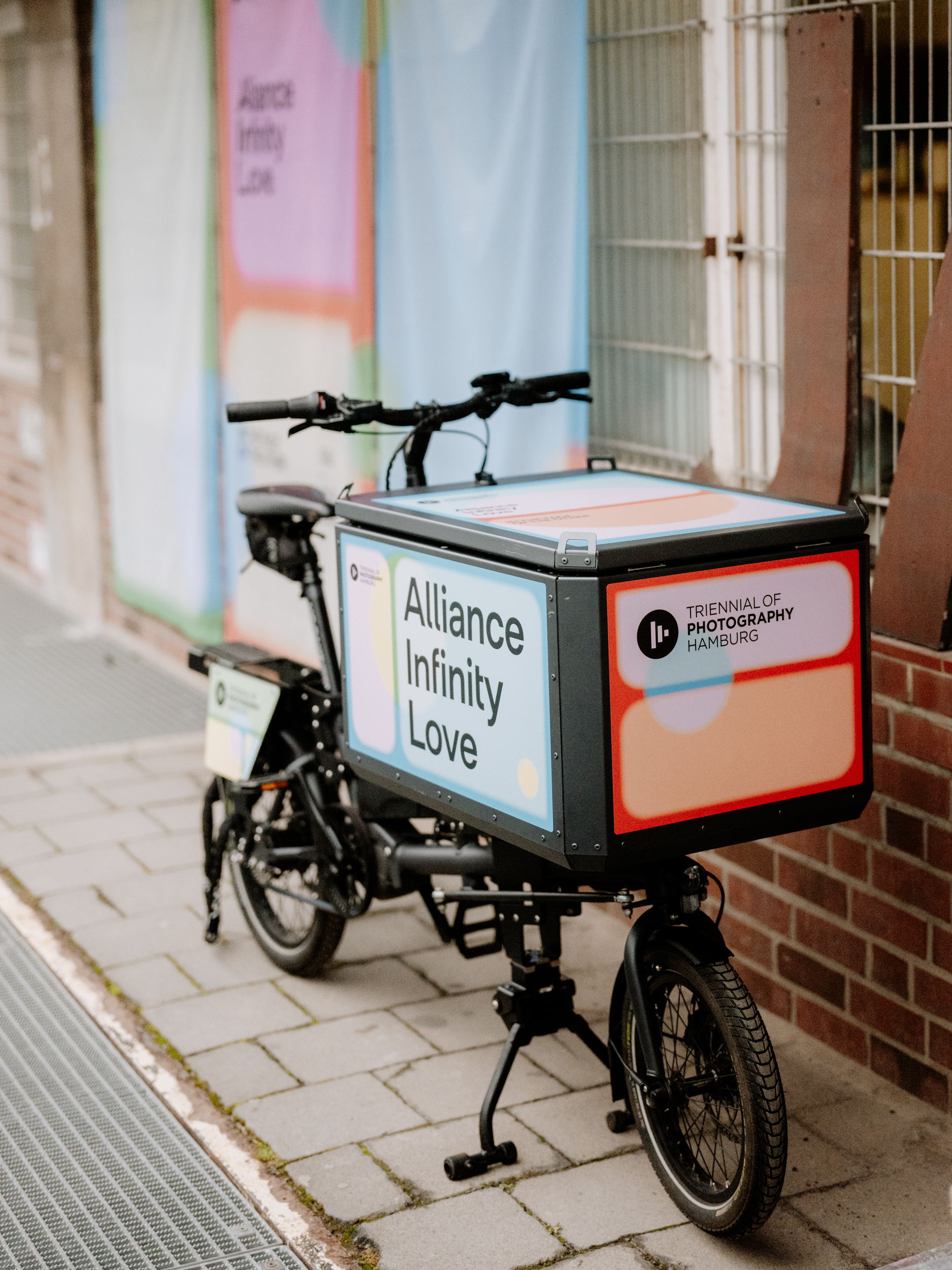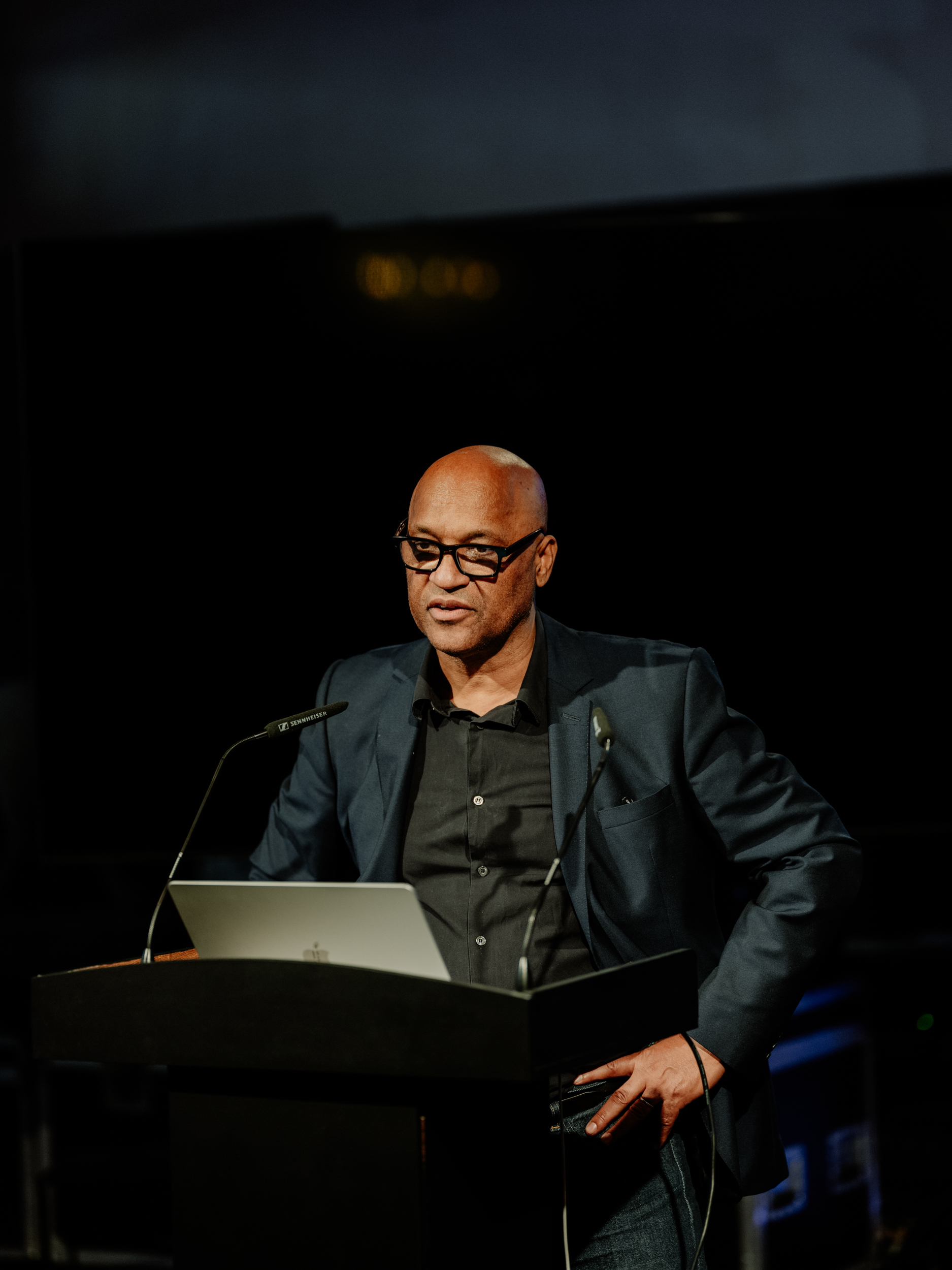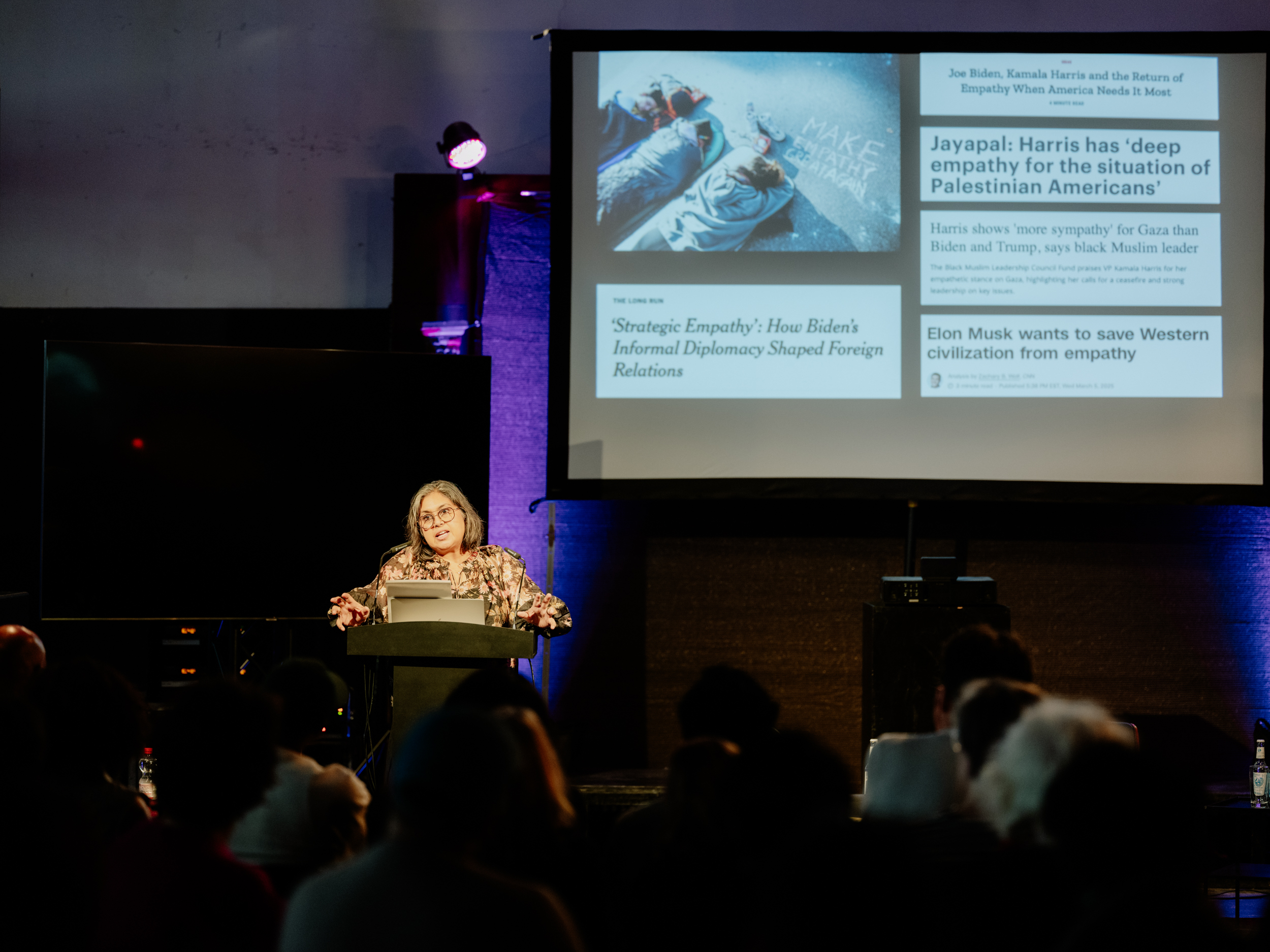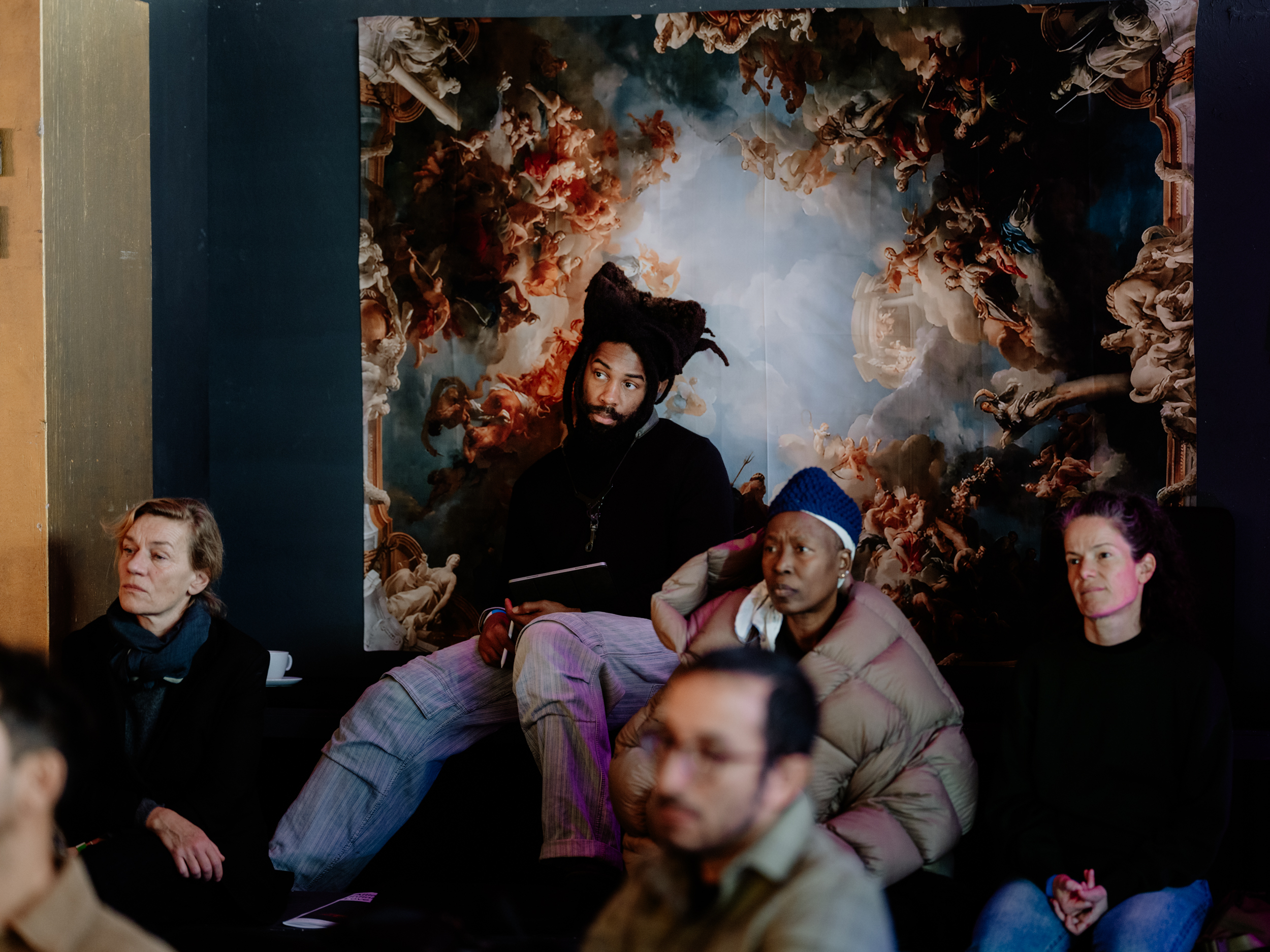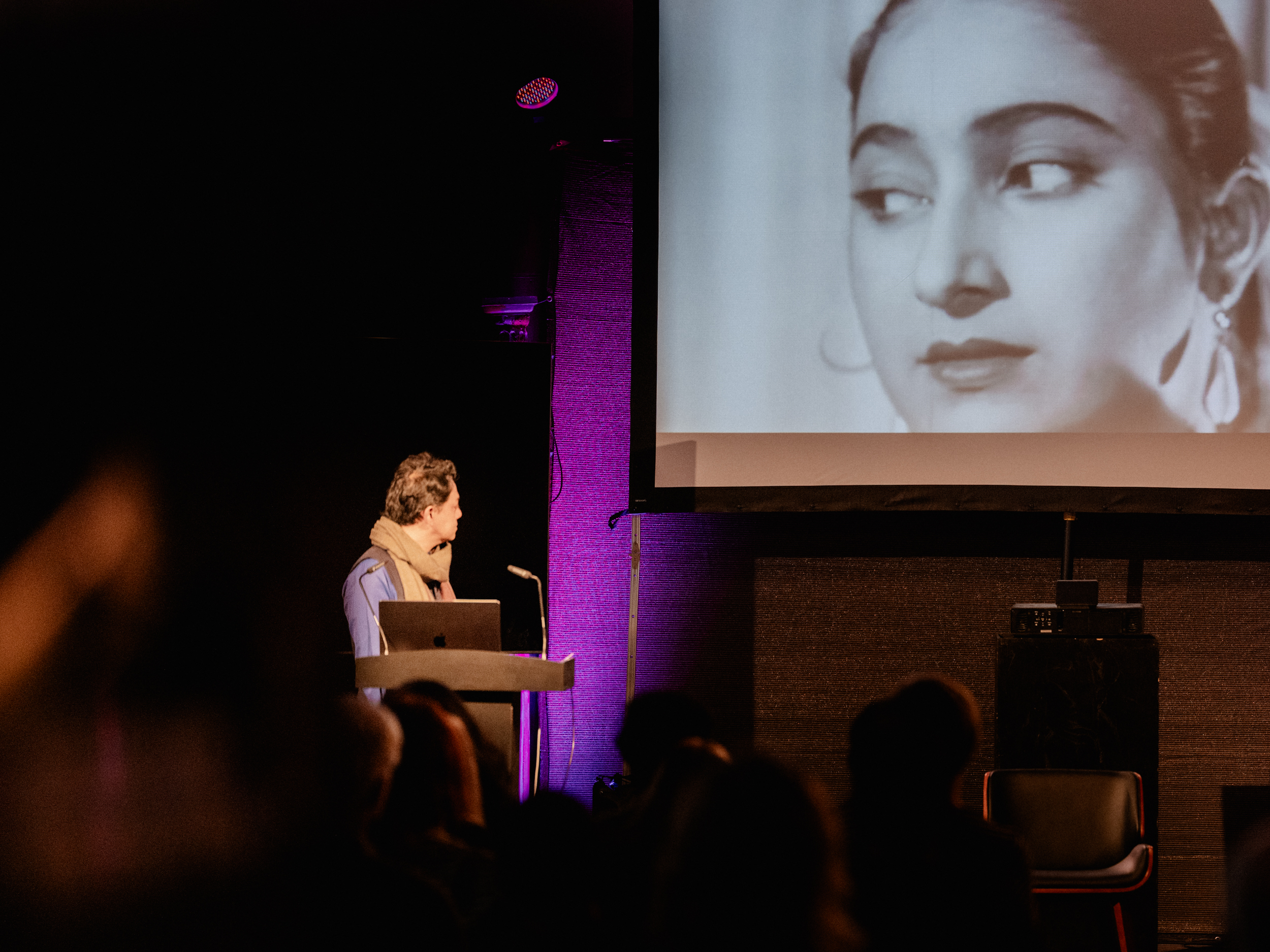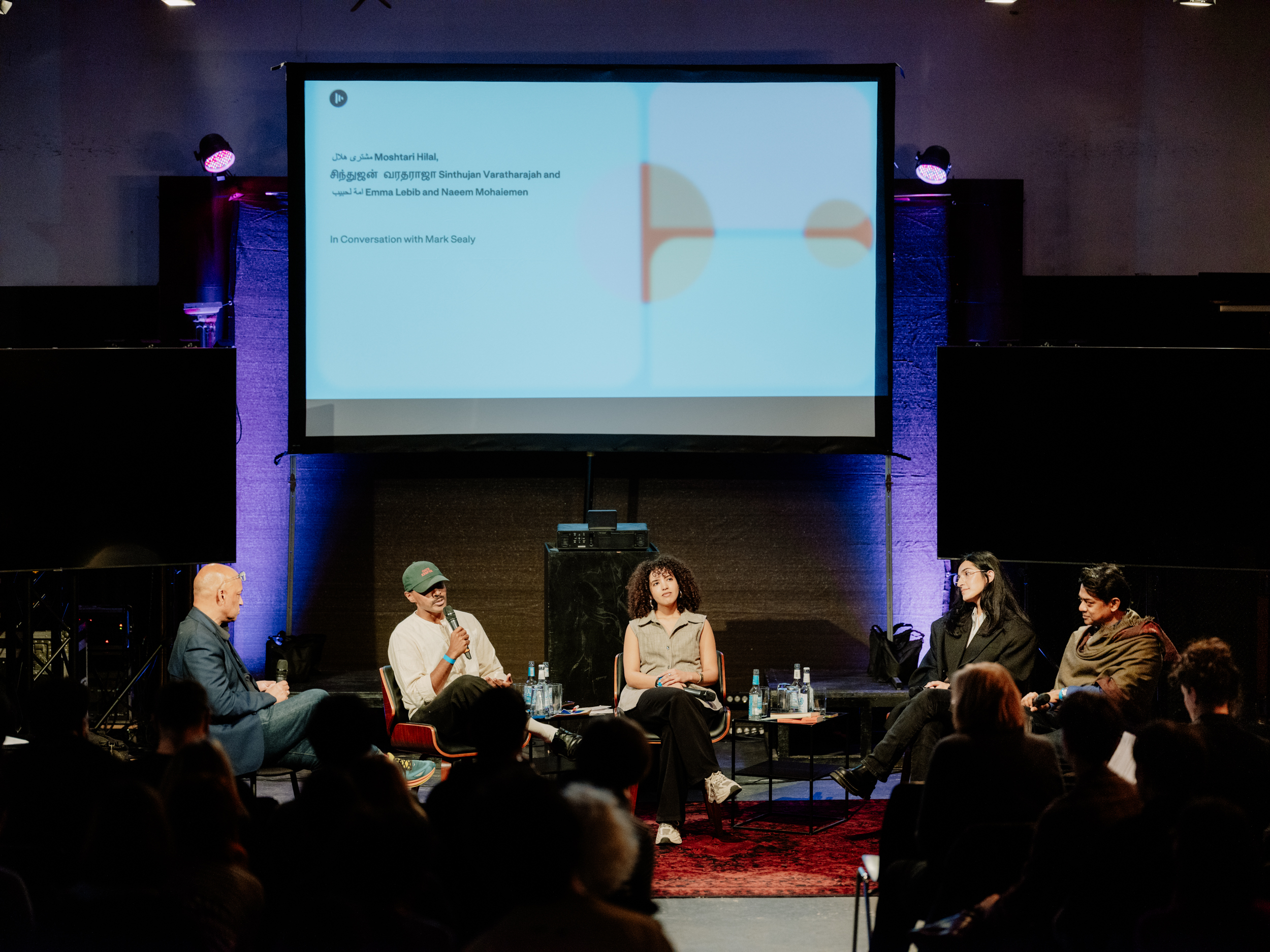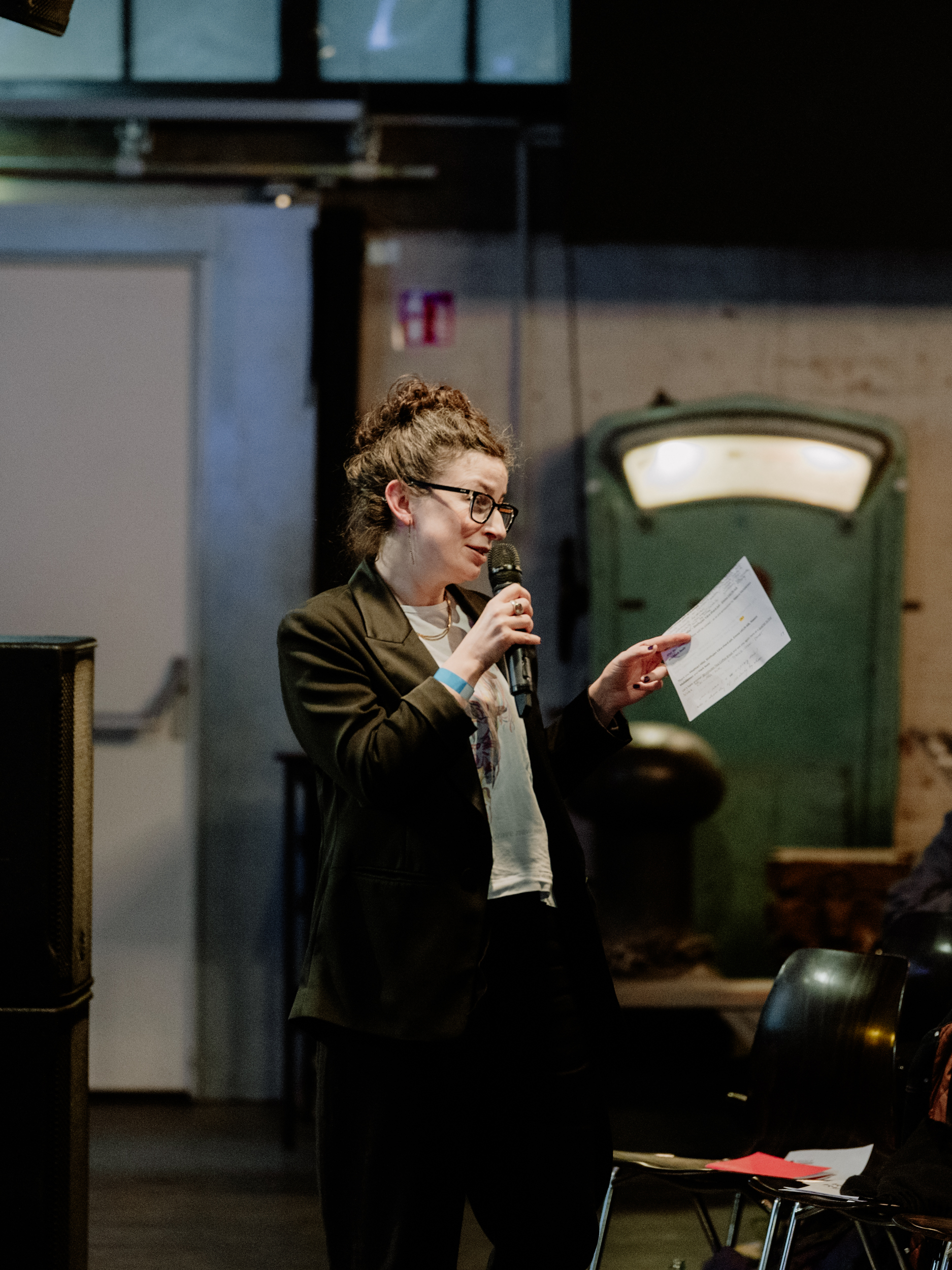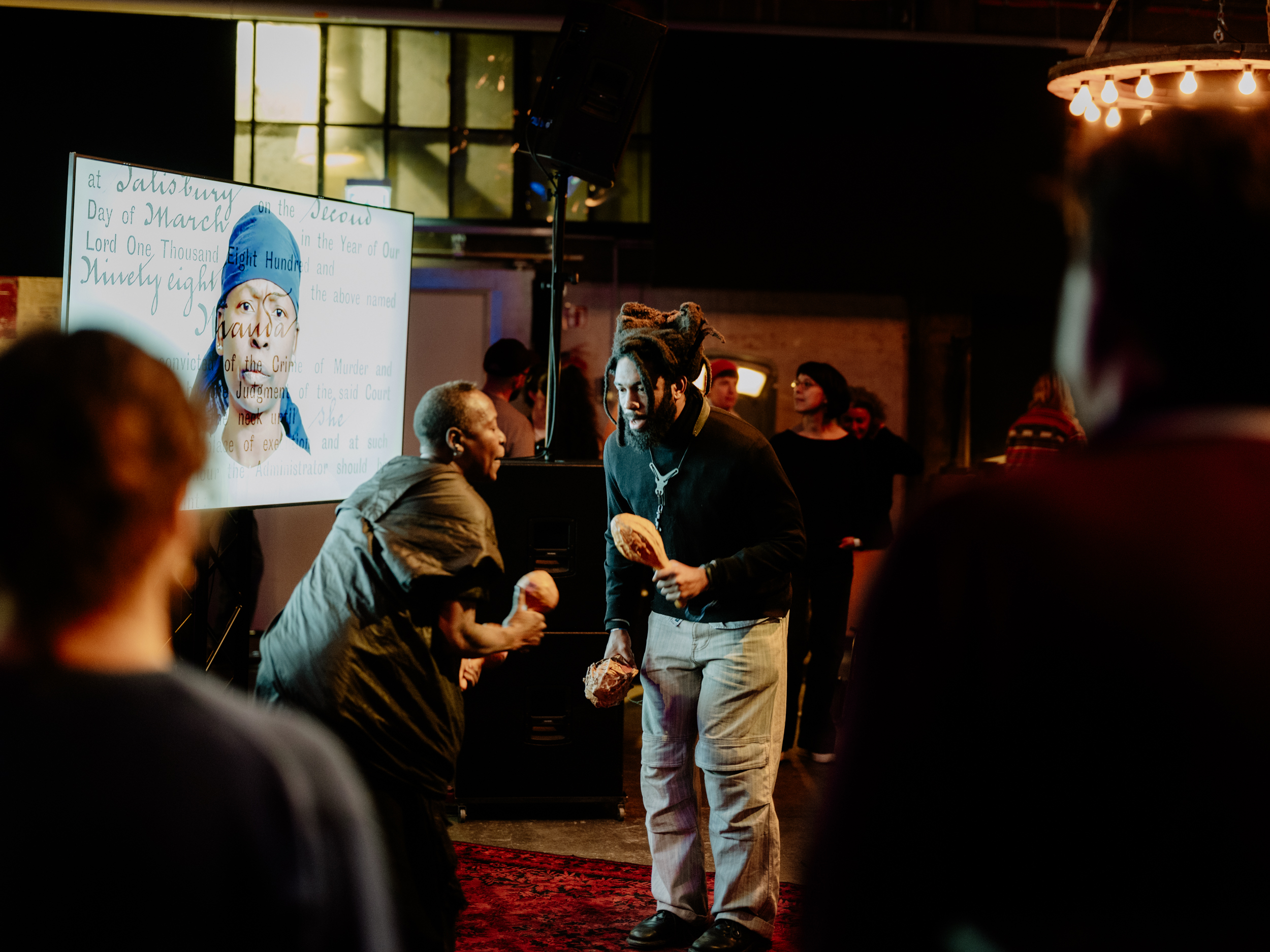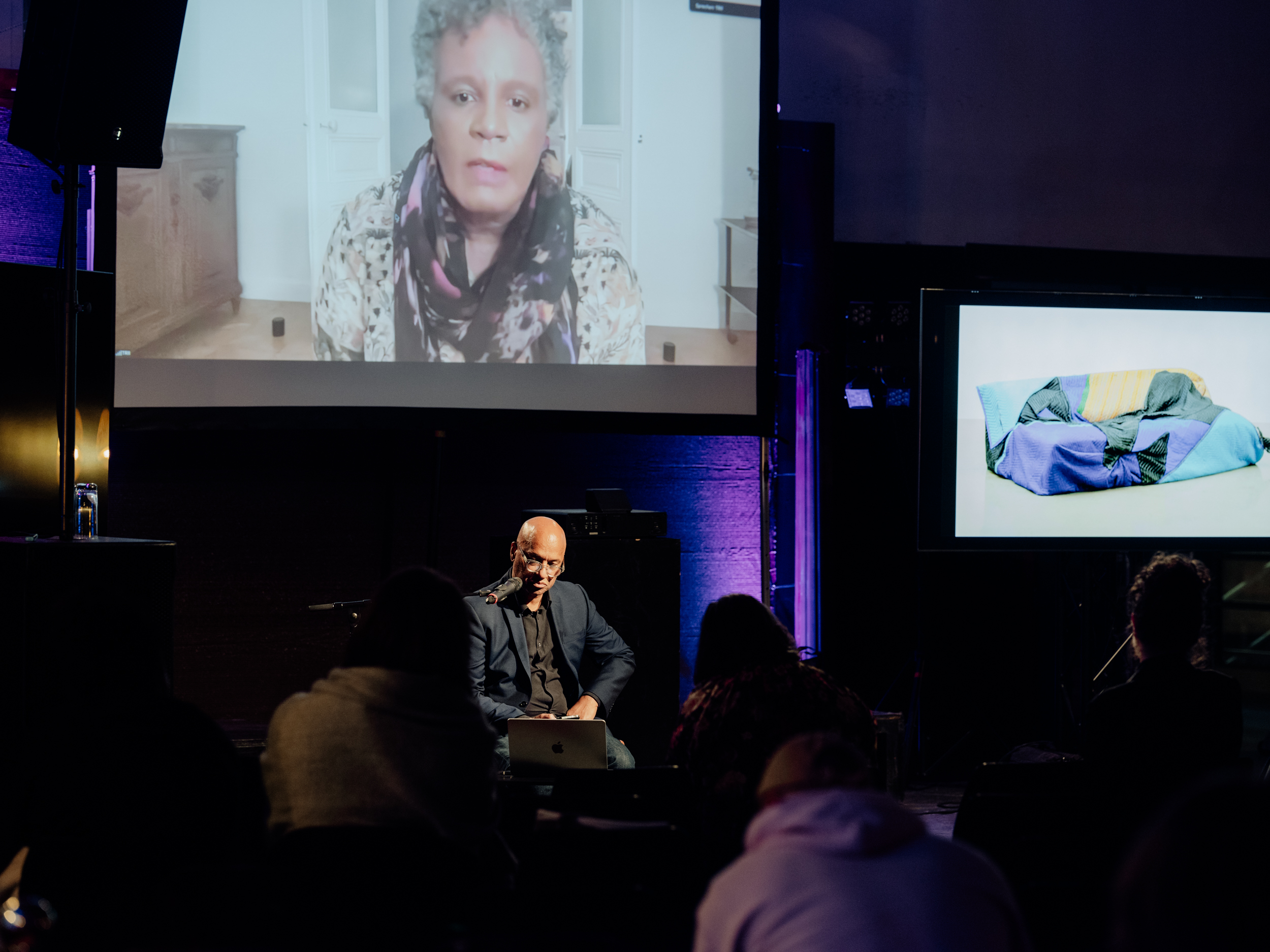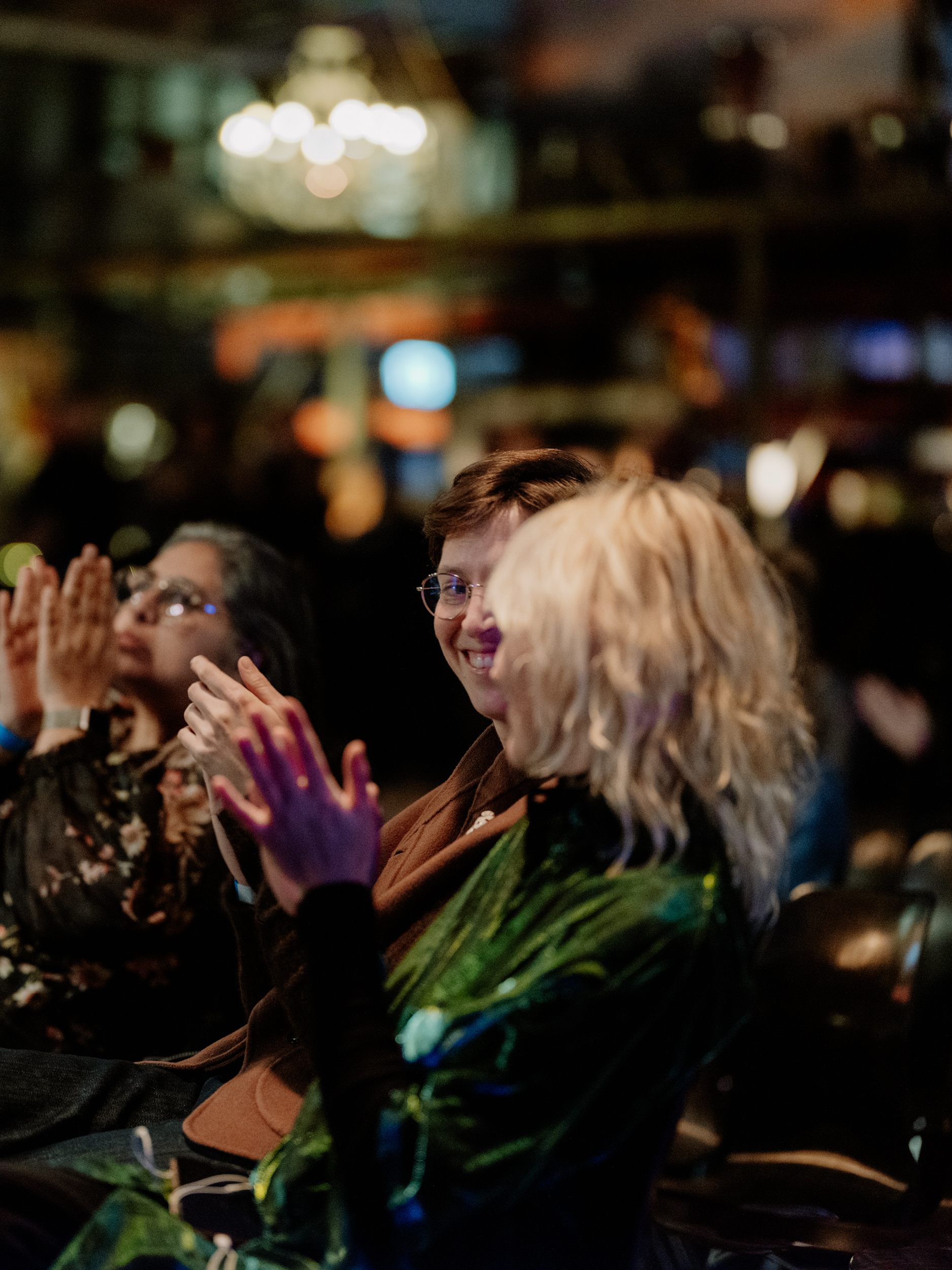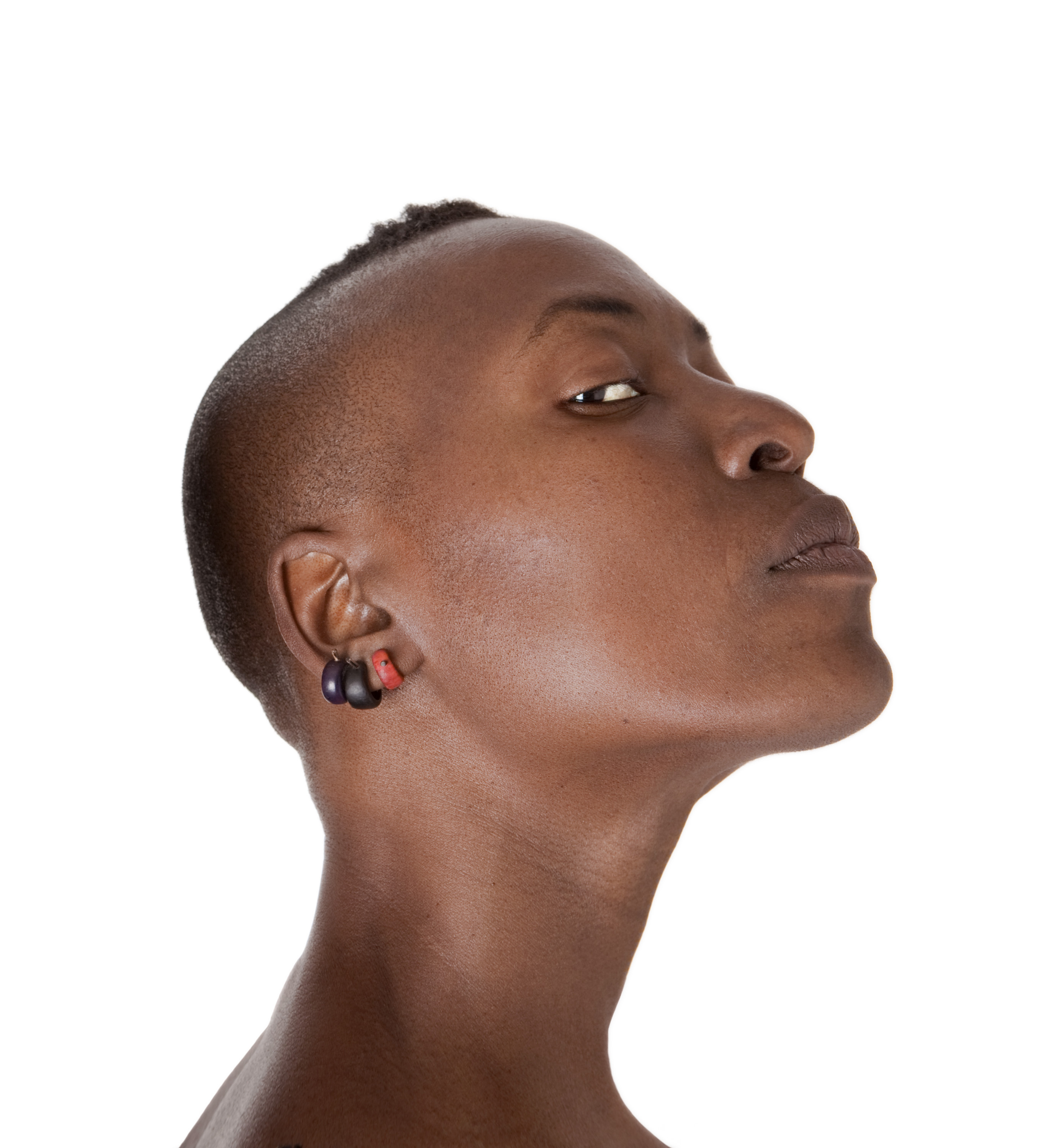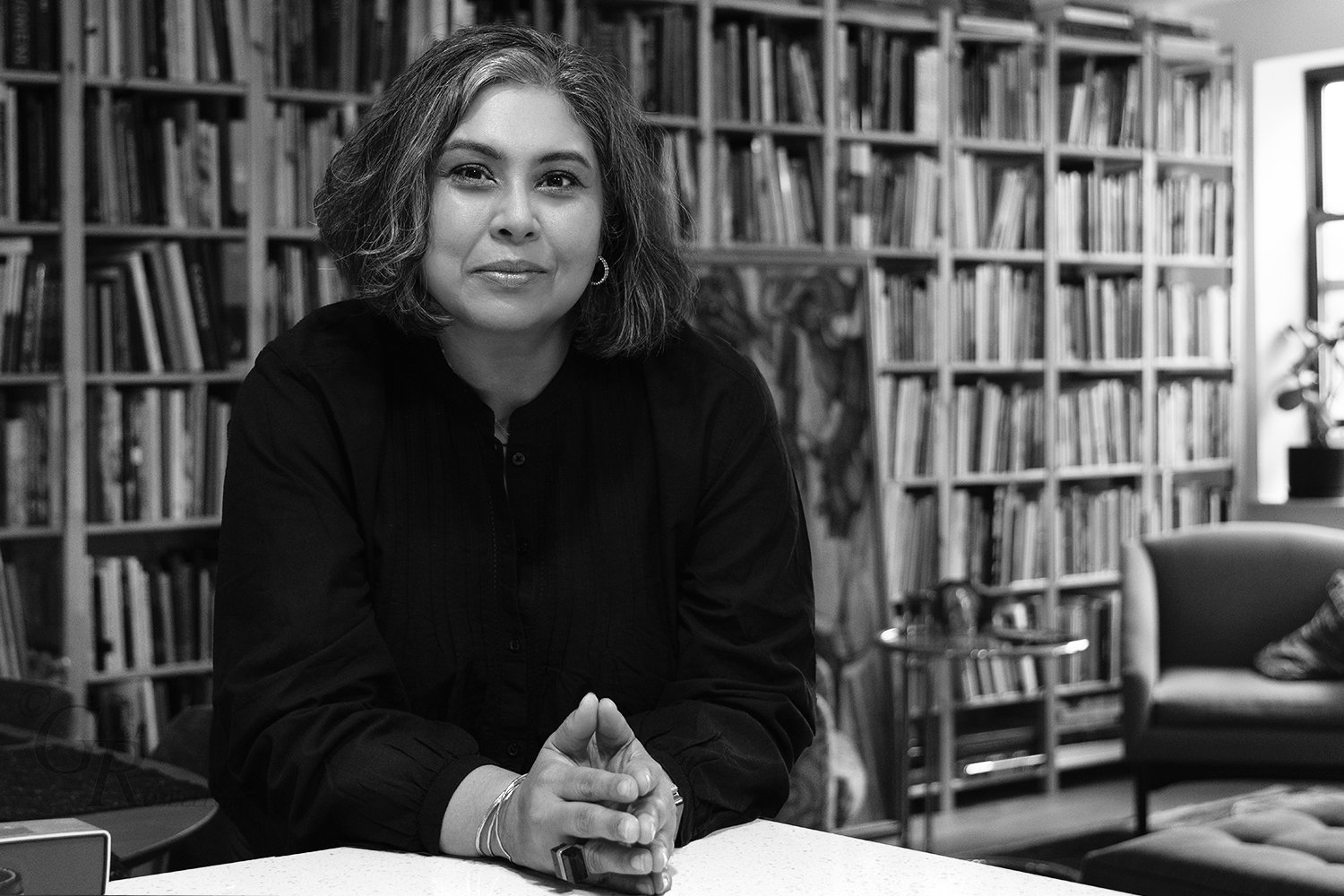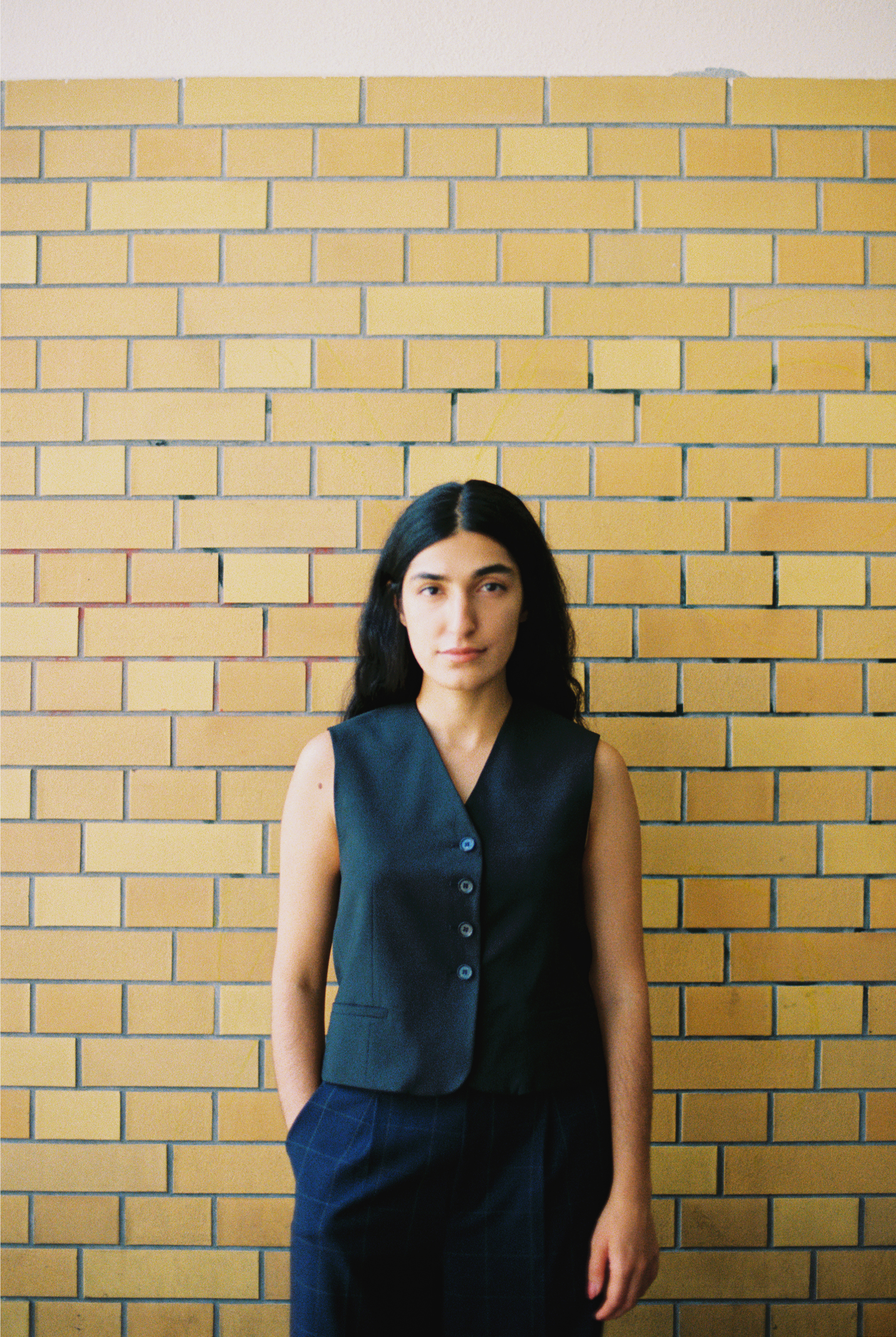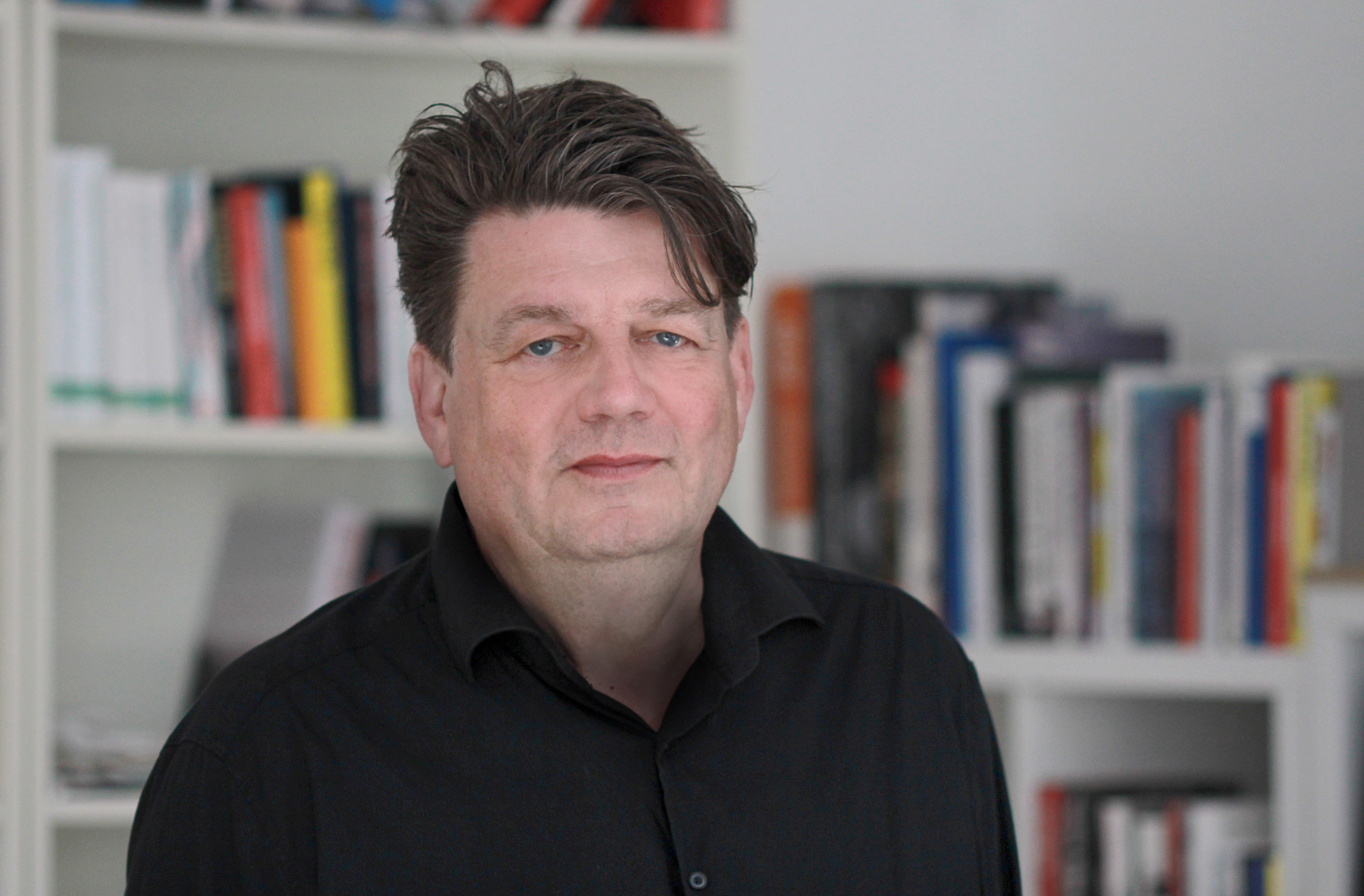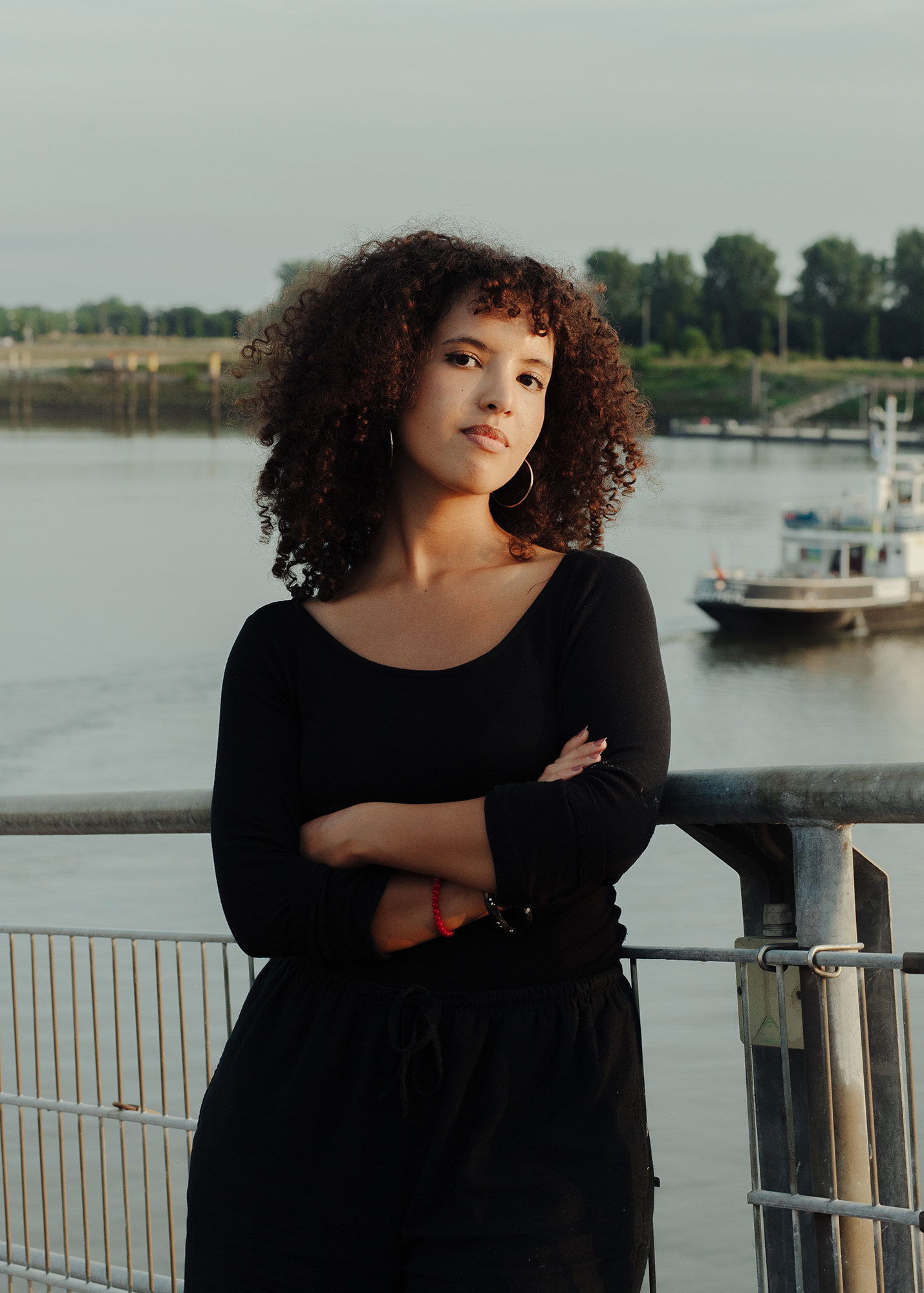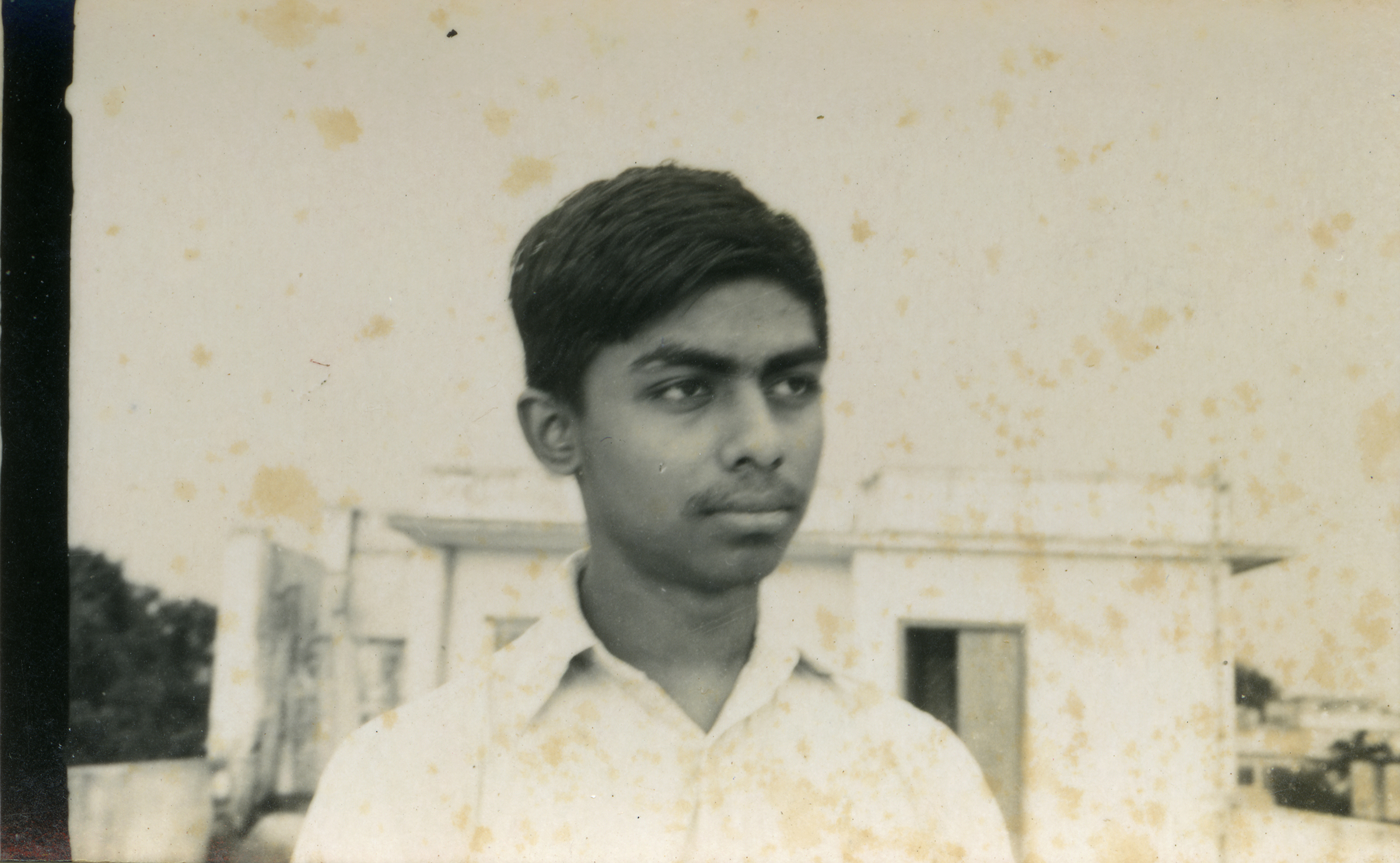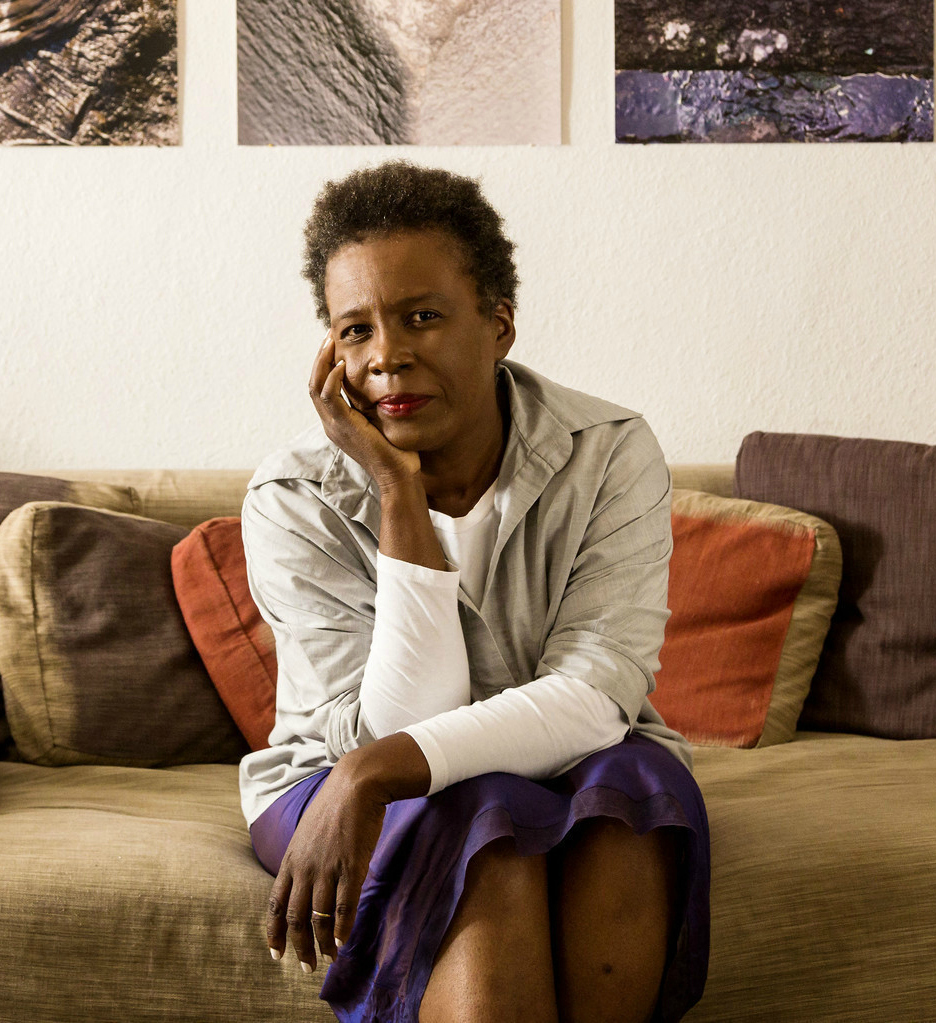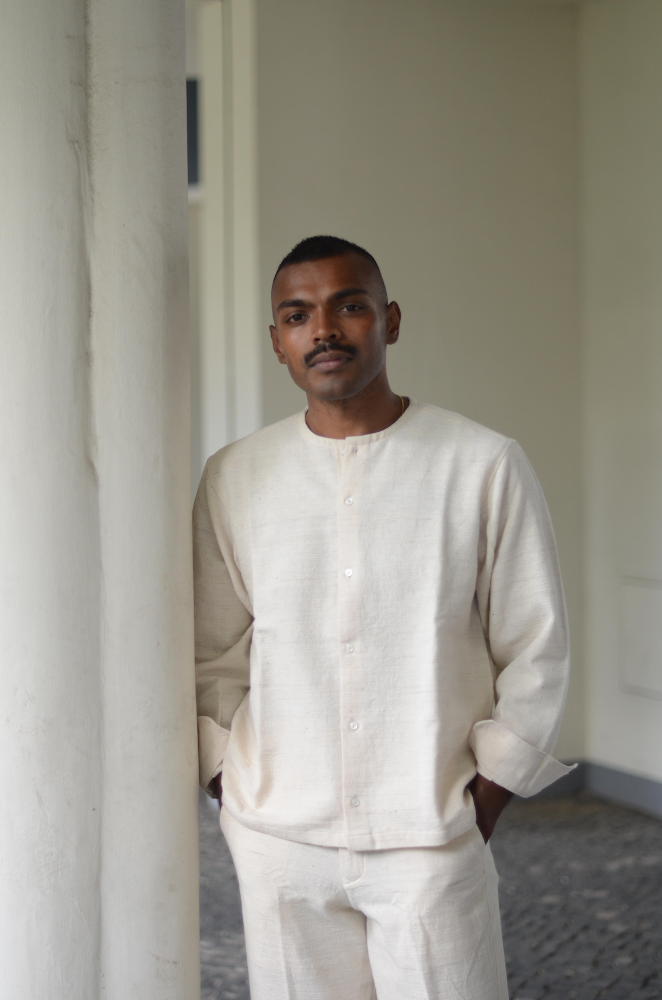International Symposium
Alliance, Infinity, Love
The International Symposium of the 9th Triennial of Photography Hamburg 2026 acts as a space for exchange and dialogic acts of generosity that signpost different possible ways of being. It explores the role photography and other cultural practices may play in fostering acts of responsibility, love, recognition and justice. By aligning philosophical, performative and critical ideas, it aims to explore, through acts of exchange, the relationship between cultural freedoms and ethical responsibilities.
The event serves as the theoretical foundation for the upcoming Triennial in June 2026, which draws on two distinct sources. The first is the creative alliance between eden ahbez, a celebrated prototype hippie, and Nat King Cole, an African American jazz musician. In 1948, their cross-cultural partnership produced the iconic song Nature Boy’– a poetic, radical expression of ethics and love that resonated globally. The second is the philosophy of Emmanuel Levinas, whose reflections on human responsibility inform the 9th Triennial’s core ideas.
Envisioned as a conduit across multiple temporalities, the symposium seeks to articulate new global futures – ones that champion civil liberties and cultural freedoms, and where Otherness is not something to be discovered, but a space for recognition, solidarity and alliance.
Through a series of lectures and conversations, notions such as Alliance, Infinity and Love – within photography and other artistic practices – might be enhanced or mobilised as dynamic forces that work towards greater social and political cohesion, to assist in the building or reimagining of new forms of coexistence.
The event took place on November 7 and 8, 2025.
Impressions
Programme
Day 1: November 7, 2025
Auditorium, Deichtorhallen Hamburg
(Deichtorstraße 1-2)
19:00 – 19:30
Welcome and Curatorial Note
Dirk Luckow (General Director, Deichtorhallen Hamburg), Carsten Brosda (Minister of Culture and Media Hamburg) and Mark Sealy (Artistic Director 9th Triennial)
19:30 – 20:30
The Concrete Utopia of Human Dignity – A Dialogue Between Art and Human Rights
Keynote by Wolfgang Kaleck
‘All human beings are born free and equal in dignity and rights’ – this is the first article of the Universal Declaration of Human Rights from 10 December 1948, and it aligns more closely with the theme of this year’s Triennial than it may initially appear. Wolfgang Kaleck will outline why this concrete utopia of human rights – this desirable condition for all people around the world – makes particular sense in today’s seemingly dystopian times. Human dignity and universal justice must no longer remain the exclusive domain of international institutions, legal experts and statesmen. These questions concern us all, and the arts and cultural institutions can play a vital role. After all, utopias only become reality when people believe in them, when they work towards them and when they can imagine a different, better state of the world. It is precisely these spaces of possibility and imagination that art and photography can open up.
20:30 – 20:45
Wolfgang Kaleck in conversation with Mark Sealy
20:45 – 21:00
Q&A and Closing Remarks by Mark Sealy
Please note: The event on 7 November will be held in English and German.
Day 2: November 8, 2025
Halle 424, Oberhafenquartier
(Stockmeyerstraße 43)
10:00 – 10:30
Registration / Arrival and Coffee
10:30 – 11:00
Welcome Note by Mark Sealy
11:00 – 11:45
Against Empathy
Keynote by Aruna D’Souza
In the urgent matter of building solidarity across chasms of difference, we often turn to the idea of building empathy as a key strategy. But empathy – as important as it might be as a character trait for individuals – is a trap when it comes to politics, centring individual transformation as a prerequisite, or even a substitution, for collective work. What seems even more important now, as we see the global spread of fascism in our political systems, is to recognise that empathy as a means to alliance-building is a delay tactic, or at the very least slows down the urgency of action. What if, instead, we imagined the obligation to care – and to preserve life – even for those who we understand as being irreconcilably different from ourselves, as our primary ethical responsibility? What would a solidarity based on care look like? What would it require of us?
11:45 – 12:30
Aruna D’Souza and Wolfgang Kaleck in conversation with Mark Sealy, followed by Q&A
12:30 – 13:30
Lunch Break
13:30 – 14:15
McGuffin
Lecture by Naeem Mohaiemen
In Alfred Hitchcock’s lengthy, recorded conversation with François Truffaut (Le Cinéma selon Alfred Hitchcock, 1966), the ‘McGuffin’ is described as a plot device that keeps the protagonists going, and is later revealed to be not much more than a trifle or a distraction (tigers in New York or lions in the Scottish Highlands, for example). For those who traced the aging survivors of Bangladesh's sometimes banned, always persecuted communists, it was an article of faith that, in exile, they would join left forces within these new European homes. They would therefore warrant close surveillance by state forces – how else to know you mattered? The actual, slow reveal of the declassified files was a disappointment, or perhaps a productive McGuffin.
14:15 – 14:30
Naeem Mohaiemen in conversation with Mark Sealy, followed by Q&A
14:30 – 14:45
Tea/Coffee Break
14:45 – 15:45
Threads of Solidarity: Gestures, Struggles, Alliances
مشترى هلال Moshtari Hilal, சிந்துஜன் வரதராஜா Sinthujan Varatharajah and امة لحبيب Emma Lehbib in conversation
What does it mean to practise solidarity today? How does it emerge, and when do alliances form across differences? Why do some struggles gain recognition while others remain unseen? In their latest volume Hierarchies of Solidarity, சிந்துஜன் வரதராஜா (Sinthujan Varatharajah) and مشترى هلال (Moshtari Hilal) reflect on solidarity as an act against oppression manifesting in both everyday gestures and global contexts. They will be joined by activist امة لحبيب (Emma Lehbib), who grew up in the Sahrawi Diaspora community in Germany and studied International and European Law. Her perspective invites reflection on how solidarities shaped by biographical, material or professional conditions differ from those formed through cultural expression or social engagement. Together, the discussion explores how solidarities are built, sustained or fractured, and what it means to practise solidarity in a world marked by uneven recognition, attention and persistent hierarchies.
15:45 – 16:15
Naeem Mohaiemen, Moshtari Hilal, Sinthujan Varatharajah and Emma Lehbib in conversation with Mark Sealy, followed by Q&A
16:15 – 16:45
Tea/Coffee Break
16:45 – 17:45
Without Justice the Rest Cannot Exist
Lecture Performance by nora chipaumire
Music by tyroneisaacstuart
What is at the centre of our meeting? What role does our body play in processing alliance, infinity and love in the face of the Other? And how do we process these big terms without acknowledging the role of justice?
This session is held in collaboration with the Tanztriennale, which will launch its first edition in Hamburg in June 2026. For the thematics of the symposium the Tanztriennale, together with the Triennial of Photography, has invited one of the most important voices in the performing arts: nora chipaumire.
Stirred by the quest for justice and the pursuit of peace, nora chipaumire proposes a slight turn: a return to her work on Nehanda, a performative project in the form of an opera about the trial and death of a revolutionary leader of the Shona people at the time of British occupation. Her contribution invites us to expand on the current discourse against continuing colonial crimes while thinking with Haile Selassie (Emperor of Ethiopia), Bob Marley and ideas held in Black liberation movements.
Followed by a conversation with Monica Gillette, Co-Artistic Director Tanztriennale 2026
17:45 – 18:30
Triage
Lecture / Reading by Claudia Rankine
In Triage, Claudia Rankine’s new literary project, and in response to the themes of the 9th Triennial as well as the state of our current political reality, she invites us to reflect on the idea that: "We have collapsed into an actual self, our twenty-first-century self, this self that envelops all that names us human—the fragility, the resilience, the vulnerability, the exhaustion, the fear, the compassion, the failures, the indignities, the struggles, the culpability, the bewilderment. Now both ‘the exit’ and ‘the collapse’ are in residence. Eventually, we will need to embrace the belief that it is here in the devastation, in the lack, with nothing—it is here in this nowhere where living takes place."
18:30 – 18:45
Claudia Rankine in conversation with Mark Sealy, followed by Q&A
18:45 – 19:00
Closing Remarks by Mark Sealy
19:00 – 20:00
Closing Social
Moderation: Siri Keil
Please note: The event on 8 November will be held in English.
Speakers
Biographies
nora chipaumire was born in 1965 in what was then known as Umtali, Rhodesia (now Mutare, Zimbabwe). She is a product of colonial education for Black native Africans – known as Group B schooling – and is invested in knowledge acquisition and sharing outside of prescribed parameters.
Aruna D’Souza is a Canadian writer and art critic based in New York. She is the author of Whitewalling: Art, Race & Protest in 3 Acts (Badlands Unlimited, 2018) and Imperfect Solidarities (Floating Opera Press, 2024). She co-curated the retrospective Lorraine O’Grady: Both/And at the Brooklyn Museum in 2021, and edited Lorraine O’Grady: Writing In Space, 1973–2019. Her art criticism appears in the New York Times, to which she is a regular contributor, and 4Columns.
Moshtari Hilal (born 1993 in Kabul) is an artist, researcher and curator based in Hamburg. She is a co-founder of the collective AVAH (Afghan Visual Arts and History) and the research project CCC (Curating through Conflict with Care). In her work, which encompasses both artistic and discursive formats, she is concerned with beauty, ugliness, shame and power. Hilal studied Middle Eastern Studies and Political Science with a focus on gender, decolonial studies and cultural studies, in Hamburg, Berlin and London.
Wolfgang Kaleck is a lawyer who founded the globally active legal human rights organisation European Center for Constitutional and Human Rights (ECCHR) in Berlin in 2007 and has been its Secretary General ever since. He is the author of several books, including Concrete Utopia: Looking Back into the Future of Human Rights (2024) and Law versus Power (2018). Kaleck, who has received numerous awards (including the Hermann Kesten Prize from the PEN Centre Germany), has been working for years on numerous projects with the Academy of Arts in Berlin, the Haus der Kulturen der Welt, the Magnum Foundation, Autograph ABP and other cultural institutions.
Emma Lehbib (born in Walsrode) is an activist and daughter of Sahrawi parents and was raised immersed in their accounts of war, displacement and activism. She studied International and European Law. Her work centres on infrastructure projects in occupied Western Sahara; international legal questions; refugee camps; exile and identity; as well as themes of solidarity, anti-colonialism and decolonial thought.
Naeem Mohaiemen works with film, photography, drawing, and essays to explore ideas of utopia and dystopia across families, borders, architecture, and political uprisings – beginning in South Asia and expanding to the post-1945 Islamic world. His film Two Meetings and a Funeral (2017), premiered at Documenta 14 in Kassel, sparked new conversations around “nonalignment” as a conceptual framework in contemporary art.
Claudia Rankine is the author of five books of poetry, including Citizen: An American Lyric (2014) and Don’t Let Me Be Lonely: An American Lyric (2004), and three plays, including HELP (2020) and The White Card (2018). Her collection of essays Just Us: An American Conversation was published in 2020; her most recent project TRIAGE is forthcoming in 2026. She is also the co-editor of The Racial Imaginary: Writers on Race in the Life of the Mind (2015) and co-founded The Racial Imaginary Institute (TRII) in 2016. Among her numerous awards and honours, Rankine is the recipient of the Poets & Writers’ Jackson Poetry Prize, and fellowships from the Guggenheim Foundation and the MacArthur Foundation. A former Chancellor of the Academy of American Poets, Rankine joined NYU Creative Writing Program in 2021 and lives in New York.
Sinthujan Varatharajah (born in Jaffna) lives in Berlin as an independent researcher and essayist. They studied Political Geography and works on the subjects of statelessness, mobilities and geographies of power(lessness) with a particular focus on infrastructures and architectures. For several years, Varatharajah was also engaged with various human rights organisations in London and Berlin.
Partners
The International Symposium Alliance, Infinity, Love was presented in cooperation with the European Center for Constitutional and Human Rights (ECCHR) and the Tanztriennale 2026.
Event partners were Halle424 and Berliner Bahnhof.
